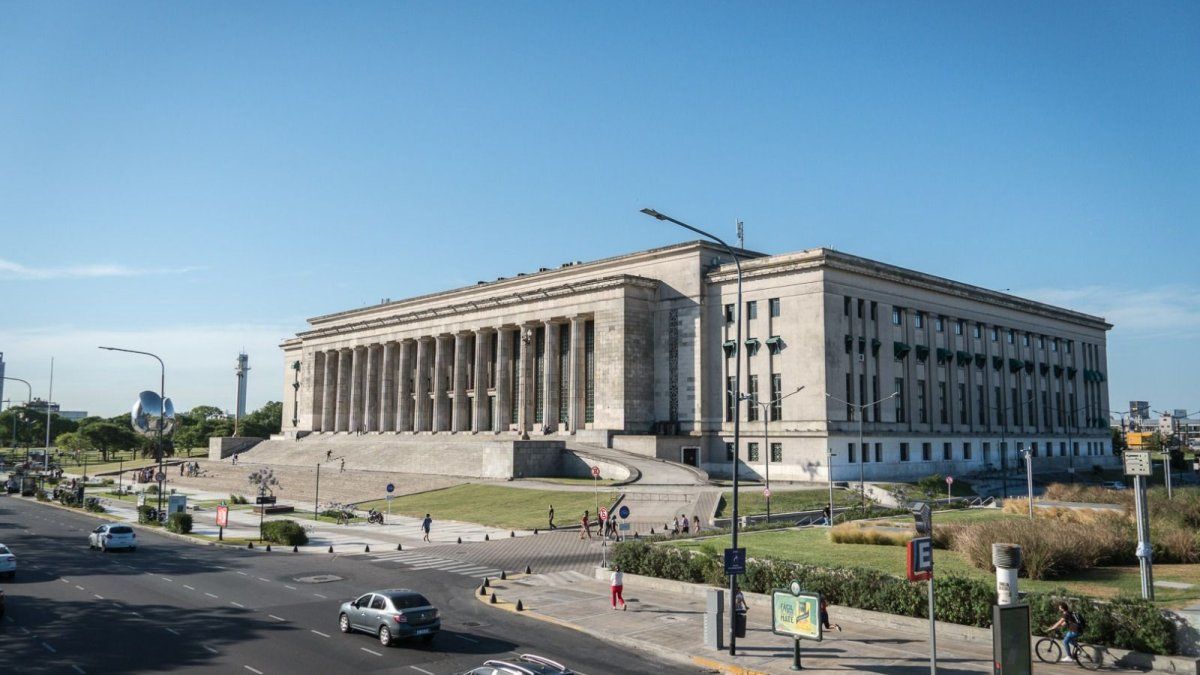Within hours of the debate in Congress over the veto against the University Financing law, the different universities came out to clarify what the free higher education for non-resident foreign students. In this sense, the Government announced, a few days ago, that it is preparing regulations to implement fees for those students without residence or residency, which would go against current legislation.
Currently, foreign students are required to present an Argentine national document to enroll in a degree course or, they are given a period of two quarters to regularize your immigration status obtaining the DNI. To advance its project, the libertarian administration will have to modify the Migration Law and the Higher Education Law.
Fees for foreign students: what the Argentine Law says
Involved in different debates – such as the ruling party’s demand to carry out audits or tariff education for foreign students -, the Public universities are the center of public debate. In a few hours, the Congress will be issued on the Javier Milei’s veto of the University Financing Law, one week after the massive federal march in defense of higher education institutions.
Congress Budget.jpeg
Congress will define today what happens with the University Financing Law.
Mariano Fuchila
In this sense, just a few days ago, the Government announced that it is working on a proposal to allow universities to charge fees to non-resident foreign students. However, and taking as an example what happens at the University of Buenos Aires (UBA), this new legislation would go against the current legal frameworkwhich should be modified in Congress or through DNU to allow charging for foreign students.
In detail, the UBA – like the rest of the national universities – requires its students to presentation of the Argentine national document or, failing that, to prove their identity with documents from the country of origin. In order to comply with the Migration Law, the institution grants a term of two quarters so that the student regularizes his or her immigration status and obtains the DNI, so temporary or permanent.
The legal framework that governs foreign students in the Argentine university system is based on two fundamental laws: the Migration Law and the Higher Education Law.
First of all, according to what is provided by the article 6 of the Migration Lawimmigrants and their families have “the right to access education on equal terms with Argentine citizens”. Furthermore, the article 7 prohibits that immigration irregularity be an impediment for a foreigner to register in any educational levelboth public and private.
On the other hand, the Higher Education Law dictates, in his article 2free degree studies in state-run institutions. This means that no fees or fees can be charged to foreign students.
The Government’s project to pay universities for foreigners
In recent months a bill between the portfolios of Education and Modernization of the Statewhich proposes changes in compulsory and higher education. As he knew Scopethe fine print of the text pursues the objectives that had been included in a first draft of the law “Bus“, which failed to pass the filter of negotiations that took place in Parliament during the summer.
One of the strongest points of the regulations was tariff implementation for everyone those foreigners that, without residence or establishmentwant to study some higher education degree (university and tertiary). In detail, the legislative proposal covered the institutions of “state management higher education” already national universitiesand left those students out of the charge native argentines already the foreigners with residence in the country.
Federal University March

Last Wednesday, October 2, thousands of people demonstrated throughout the country against the defunding of public higher education.
Mariano Fuchila
The proposal was truncated since the law “Bus” was initially withdrawn from Congress by decision of the Executive Branch. Subsequently, it was also left out of the Bases law approved in June.
Despite the libertarian proposal, in most of the country’s national universities foreigners cannot study without being residents. Thus, it remains to know how the Government would advance in the framework of current legislation.
The debate on charging non-resident foreigners takes place in a context in which the national administration is carrying out a review of university expenses, which is accompanied by an adjustment of the items for operation and salariesin tune with the State budget cuts in areas of the PEN and decentralized organizations and immersed in a conflict with students, teachers and the educational community.
Source: Ambito
I am a 24-year-old writer and journalist who has been working in the news industry for the past two years. I write primarily about market news, so if you’re looking for insights into what’s going on in the stock market or economic indicators, you’ve come to the right place. I also dabble in writing articles on lifestyle trends and pop culture news.




